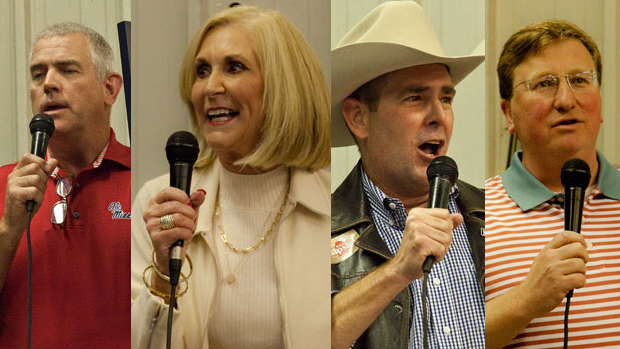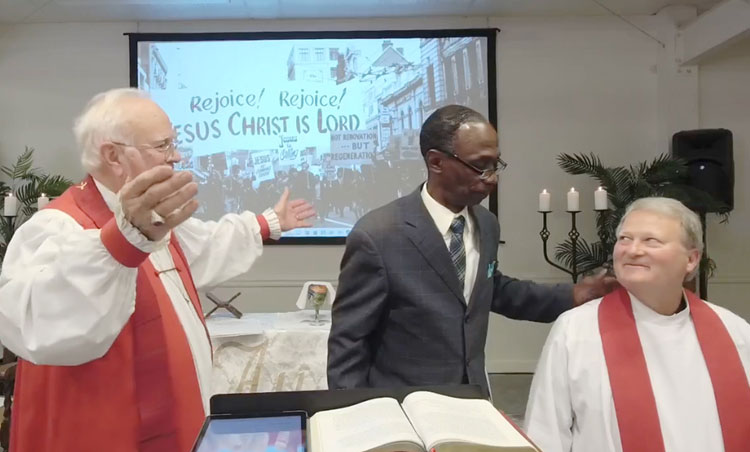
“Equality,” I spoke the word
As if a wedding vow…
Ah, but I was so much older then,
I’m younger than that now (My Back Pages, Nobel Laureate Bob Dylan)
“All men are created equal” are the five most revolutionary words, in their practical consequences, of all political history.
As we all know, they appear near the beginning of the American Declaration of Independence, embedded within the sentence “We hold these truths to be self-evident, that all men are created equal, that they are endowed by their Creator with certain unalienable Rights, that among these are Life, Liberty and the pursuit of Happiness.” The Declaration’s principal author, then 33-year-old Thomas Jefferson, therefore asserts “… whenever any Form of Government becomes destructive of these ends, it is the Right of the People to alter or to abolish it.” (Emphasis added.)
These ideas have been attributed to various sources, but the most apparent inspiration for them comes from John Locke’s Second Treatise on Liberty: “Reason, which is [natural] law, teaches … that being all equal and independent, no one ought to harm another in his life, health, liberty, or possessions”. (Emphasis added.)
The most immediate source of The US Declaration’s ideas and their wording came from Virginia’s George Mason, the primary draftsman, a few weeks earlier, of the Virginia Declaration of Independence’s stirring words: “That all men are by nature equally free and independent, and have certain inherent rights, of which, when they enter into a state of society, they cannot, by any compact, deprive or divest their posterity; namely, the enjoyment of life and liberty, with the means of acquiring and possessing property, and pursuing and obtaining happiness and safety.” (Emphasis added.)
Jefferson himself wrote, a year before his death on July 4, 1826, “Neither aiming at originality of principle or sentiment, nor yet copied from any particular and previous writing, it was intended to be an expression of the American mind, and to give to that expression the proper tone and spirit called for by the occasion.”
Marxism is Anti-Americanism
In other words, part and parcel of what might be called the American Faith, is the belief that every individual is born with the right to pursue ownership of their own property. To be clear, the meaning of property under discussion is not personalty such as the clothes on one’s back. Rather, it’s property that generates income for its owner, ie, mineral wealth and rents from land and buildings, profits from a business enterprise, or interest and dividends from invested capital.
In diametrical opposition, Marx and Engels wrote “[T]he theory of the Communists may be summed up in the single sentence: Abolition of private property.” (Communist Manifesto of 1848, Chap. II)
Hence, Marxism in its very essence is anti-Americanism. America has evolved since 1776, and so has Marxism since 1848. But, whether one is breathlessly pro-American, bitterly anti-American, or somewhere in between, there is no definition of Americanism that excludes a right of private property, nor, whatever one’s feelings about Marxism, is there a definition inclusive of an individual right of private property.
At one time, it might have been plausibly argued that the institution of private property is itself to blame for slavery. However, the writings about Soviet Russia’s gulags by former virtual slave, and Nobel laureate in literature, Aleksandr Solzhenitsyn forever dispelled that myth. As these words are written, mainland China’s Market Marxism employs a great many slaves to produce goods for Americans and other consumers around the world. “Debt slavery” (though illegal) is still practiced in South Asia. In recent years it has blossomed again in North Africa. Sex-trafficking in the US and elsewhere, though also illegal, still persists.
So, it is obvious that the core cause of slavery is not private property, as such, but instead the much more ancient Will to Power, absent a legal system that is both willing and able to prevent its unchecked exercise. Nevertheless, a discussion of the American founding must include the matter of slavery.
An Abominable Crime
Note, though, that whereas Locke includes a right to “possessions” as part of nature’s laws, and Mason uses the term “possessing property”, Jefferson defaults to “the pursuit of Happiness”.
A shameful aspect of the human condition, in the Americas and every other continent, is that possessing other human beings as property has been part of the natural order, and the foundation of most pre-Capitalist civilizations, for something close to 10,000 years. In 1776, specifically, slavery was legal in all 13 American colonies.
In theory, though unfortunately not in practice, Jefferson was a fierce opponent of slavery. In an early draft of the Declaration he lists George III’s opposition to attempts of the colonies to reduce or abolish slavery as one of the justifications for breaking away from Great Britain:
“He has waged cruel war against human nature itself, violating its most sacred rights of life and liberty in the persons of a distant people who never offended him, captivating and carrying them into slavery in another hemispere, or to incure miserable death in their transportation hither…..suppressing every legislative attempt to prohibit or to restrain this execrable commerce determining to keep open a market where MEN should be bought and sold: and…..he is now exciting those very people to rise in arms among us…..” (Spellings and emphasis in the original.)
Note the blatant contradiction: We White Americans have a natural right to fight for our liberty because, among other reasons, the tyrant we are fighting is encouraging Black Americans, who possess the very same rights, to fight for their own liberty against us!
At other times, Jefferson called slavery a “hideous blot”, “moral depravity”, and “an abominable crime”. Yet he owned over 600 slaves in his lifetime, and freed only a handful in his will. Why didn’t he free them all, as some of his contemporaries did? To be sure, he favored emancipation. But he thought emancipation should be gradual, lest a sudden surge in the number of free Blacks result in violence between them and Whites (a fear not entirely unfounded as America’s post-emancipation history turned out).
Further, in the era when American independence was declared, slavery was being gradually phased out in a number of states, as well as the rest of the hemisphere.* As German chancellor Otto von Bismarck would declare a century later, “Politics is the art of the possible, the attainable — the art of the next best.” And so, mention of “property”, “possessions”, “slaves”, or “slavery” were left out of the Declaration. But even absent explicit wording, it is clear from his personal correspondence with those who knew him best that in his view all men are endowed by their Creator with the right to pursue property of their own.
Faith vs. Reason
Oxonians will recall that filmmaker Ken Burns gave a talk at Ole Miss in October 2015. His most recent work is a 4-hour documentary on the life of Benjamin Franklin. In it we learn (in the voice of historian and onstage Thomas Jefferson impressionist Clay Jenkinson {in a tone that sounds smugly condescending to this listener’s ears}) that Franklin recommended that the words, in Jefferson’s draft of the Declaration, “We hold these truths to be sacred and undeniable…” be changed to “We hold these truths to be self-evident …” because, Franklin wrote, “… just as two plus two is four and the sun rises in the morning, it is self-evident that we have a right to revolution.” (See tinyurl.com/2p8vdx86)
About Franklin’s suggestion, eminent journalist Walter Isaacson then comments “Franklin is saying … our rights come from rationality and the consent of the governed [spoken in a triumphalist tone], not the dictates, or dogma, of a religion [said as if religious faith were a regrettable misfortune].” Award-winning historian Christopher Brown wisely reflects, “To say that something is self-evident, to say that it’s common sense, is to say there’s no other way to think about this … this thing which is in fact really contentious.”
Indeed. Plato, a rational thinker of some prominence, writes in Book I of The Republic: “Men censure injustice fearing that they may be the victims of it, and not because they shrink from committing it.” If anything, reason tells us (in words attributed to PT Barnum), “There’s a sucker born every minute”, and so, as Woody Allen advised, “Take the money and run”. In Democrat Party stalwart James Carville’s prosaic rendering, “Politics ain’t beanbag”. Mao Zedong put the matter more menacingly, “Political power grows out of the barrel of a gun.”
Isaacson makes a category error. A sense of the sacred is almost universal among humans. For some, it might be evoked by the Book of Genesis, for others by the Communist Manifesto of 1848, for still others by SEC football. Few people are so emotionally dead as to hold nothing at all sacred.
Religion, by contrast, is the institutional expression of those beliefs, writings, objects, and rituals that its adherents hold sacred.
And, at the end of the day, the final sentence of the Declaration reads, in full, “And for the support of this Declaration, with a firm reliance on the protection of divine Providence, we mutually pledge to each other our Lives, our Fortunes and our sacred Honor.” [Emphasis added.]
So much for the Secular Triumphalist reading of the compound word “self-evident”.
The belief that no one should be born the servant, serf, or slave of another clearly derives from our moral sense. A version of this sentiment is found in the moral philosophy of cultures worldwide — but not in Aristotle’s exposition on logic.
Nonetheless, hope springs eternal from the Enlightenment liberal’s breast that if only religion (and aristocracy) could be driven from government, people would lead rational lives of permanent peace and prosperity. No more Thirty Years’ War, or any Kulturkampf at all.
Yet, in 3 centuries of ever-expanding secularism, and Enlightenment-approved meritocracy in government†, academia, mass media, and almost everything else in the public square, human reason has been used to create, and to employ, ever more violent nuclear, chemical, and biological weapons of mass destruction. To be sure, reason led to the creation of covid vaccines. But, it’s far from impossible that reason-driven gain of function research (alarming in and of itself) accidentally led to covid’s spread in the first place.
The Rich are Different from Me and Thee
In 1787, 12 years after the signing of the Declaration, and only 5 years after Britain formally recognizes America’s independence via the Treaty of Paris, the United States are becoming increasingly disunited. The Constitution, scheduled to take effect in 1789, has been proposed for ratification to the individual states. To persuade those that have been hesitating to sign on (particularly New York), in 1788, a series of 85 essays are published, now known as the Federalist Papers.
Federalist No. 10, probably authored by James Madison, reads in part (but not necessarily in this order):
“The diversity in the faculties of men, from which the rights of property originate, is not less an insuperable obstacle to a uniformity of interests. The protection of these faculties is the first object of government. From the protection of different and unequal faculties of acquiring property, the possession of different degrees and kinds of property immediately results; and from the influence of these on the sentiments and views of the respective proprietors, ensues a division of the society into different interests and parties.”
Thus, all of us are born equally entitled to pursue private property, but not all of us are born equally capable doing so successfully.
“The latent causes of faction are thus sown in the nature of man … But the most common and durable source of factions has been the various and unequal distribution of property. Those who hold and those who are without property have ever formed distinct interests in society. Those who are creditors, and those who are debtors, fall under a like discrimination. A landed interest, a manufacturing interest, a mercantile interest, a moneyed interest, with many lesser interests, grow up of necessity in civilized nations, and divide them into different classes, actuated by different sentiments and views. The regulation of these various and interfering interests forms the principal task of modern legislation, and involves the spirit of party and faction in the necessary and ordinary operations of the government.” (Emphasis added.)
There are those who insist that social injustice is the sole source of inequality. While it’s true that Jeff Bezos has more bargaining power than I do when it comes to the prices I pay to make purchases from Amazon, let’s be realistic: Social injustice isn’t the only reason he’s richer than I am.
Madison notes: “There are again two methods of removing the causes of faction: the one, by destroying the liberty which is essential to its existence; the other, by giving to every citizen the same opinions, the same passions, and the same interests.”
Thus, only if no one is free will everyone be equal. On the other hand, only if no one is allowed to have a difference of opinion can conflict arising from inequality be avoided.
In sum, the burden of the American experiment in self-government of a diverse people spread out over a vast land area is to allow everyone the liberty to try, yet some to succeed more than others.
~~~~~~~~~~~~~~~~~~~~~~~~~~~~~~~~~~~~~~~~~~~~~
* Then in 1794, Eli Whitney, in order to pay off his student debt (from Yale), used reason to invent a device for mechanically separating out cotton seeds from the rest of the cotton, ie, the cotton gin. Suddenly, growing cotton became obscenely profitable, and owning slaves to plant and harvest it became obscenely widespread — but only in those places most suitable for growing cotton (ie, the South).
† “In the end the royalty and nobility of France was largely eliminated by the Reign of Terror. Of those condemned by revolutionary courts and executed, 8 percent were aristocrats; 6 percent were clergy; 14 percent were from the bourgeoisie; and 72 percent were peasants accused of desertion from the army, avoiding the draft, or other crimes against the revolutionary state.” (Winning Revolutions: The Psychosocial Dynamics of Revolts for Freedom, Fairness, and Rights, p. 108; edited by J. Harold Ellens, Praeger 2014.



